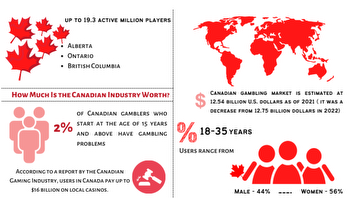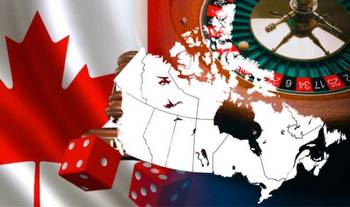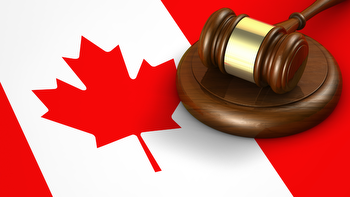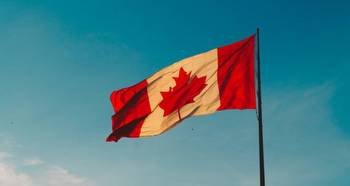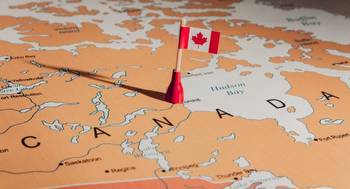Canadian Gambling Laws: A Guide On Safe Playing
Gambling has become a multi-billion industry in the world, with many people using it as a form of entertainment. It refers to the act of betting or wagering on games, sports, or the outcome of an event with the intent of winning money or any other valuable assets. There are many types of gambling including casino gambling, sports betting, lottery, bingo, and raffles.
Gambling is popular in Canada and according to a survey conducted by Statistics Canada in 2019, approximately 79% of Canadians reported that they had participated in some form of gambling in the past year.
Therefore, the government has set gambling laws to regulate the industry, prevent organized crime as well as and protect its people from any potential harm. In this article, we will be looking at Canadian gambling laws such as the Canadian gambling age and gambling laws in some provinces and territories.
Instant Withdrawal Speed
It is also worth noting that most Canadian banks today allow online casino deposits and withdrawals with instant transaction speed, compared to 10 years ago when this could be a real problem for players. But some traditions are virtually unchanged, so Visa and Mastercard remain the most popular ways to replenish a casino account for Canucks.
History Of Gambling Laws In Canada
The history of Canadian gambling laws dates back to the 19th Century. In 1892, Canada came up with the Canadian Criminal Code, which we will be looking at in the course of the article. These laws were meant to regulate gambling activities in the country.
Since then, gambling laws have evolved. For example,
- In the early 1900s, most forms of gambling were illegal in Canada, except for horse racing and charity events.
- In 1969, the federal government passed the Criminal Code, which made all forms of gambling illegal except for those conducted by the provincial government or licensed charities.
- In the 1970s the provinces began to establish lotteries as a way to raise revenue for social programs.
- In 1985 the federal government passed the criminal code amendment, which gave provinces the authority to regulate and license gambling activities within their borders. ● In the 1990s the provinces began to expand their gambling offerings, introducing casinos and video lottery terminals (VLTs) in addition to lotteries and horse racing. ● In the year 2005, the federal government passed the Criminal Code amendment, which allowed for the regulation and licensing of online gambling within Canada.
Since then, Canada has had its own gambling laws that vary by province and territory.
Is Gambling Allowed In Canada?
Yes, gambling is legal in Canada but only in provinces that are licensed to conduct and manage gambling by the government. Each province and territory has its own regulatory body that oversees gambling activities within its borders, including casinos, lotteries, sports betting, and online gambling. Canadian gambling laws are in place to ensure that gambling is conducted fairly, responsibly, and in a manner that protects both players and the integrity of the industry.
How Old Do You Have To Be To Gamble In Canada?
The legal age for gambling varies from province to province, however, the average age in most provinces and territories is 19. For example, in provinces such as New Brunswick, Newfoundland, Labrador, Nunavut, Ontario, Nova Scotia, Prince Edward, and Yukon, the gambling age is 19.
But in some provinces such as Alberta, Manitoba, and Quebec, the legal age for gambling is 18. According to Canadian Gambling Laws, it is illegal for minors to engage in any sort of gambling activity. To verify their age, teenagers have to provide an ID before engaging in any type of gambling activity.
Gambling Laws By Province And Territories
Canadian gambling laws are regulated by the provinces and territories which means that the rules and regulations governing gambling activities can vary from one province to another. Here is a brief overview of the gambling laws in some provinces in Canada;
Alberta
Gambling is quite popular in Alberta. Residents are allowed to gamble at online casinos and sportsbooks without any limitations. They are allowed to choose from the 25 land-based casinos located there. Sports betting is also allowed but limited to Parlay bets. Gambling in Alberta is regulated by the Alberta Gaming, Liquor, and Cannabis Commission (AGLC). The legal age to gamble in Alberta is 18 years old.
Quebec
There are 9 land-based casinos in Quebec open to anyone who is 19 years of age or over. Here, players can access a variety of offshore casinos as well as Espacejeux, a gaming site run by the government. Residents also have access to Mise-O-Jeu, the only sports betting site in the province where players must bet on parlay bets.
British Columbia
In British Columbia, gambling is regulated by the British Columbia Lottery Corporation (BCLC). There are over 15 land-based casinos and when it comes to online gambling, the only Canadian gaming and sports betting site available is PlayNow. Launched in 2004, the site contains sports betting, lottery, bingo, poker, and casino games.
Manitoba
Here, gambling is regulated by The Liquor and Gaming Authority of Manitoba, including online gambling. Manitoba has only one licensed online casino called PlayNow Manitoba where sports bets are limited to $250 per day and gamblers can bet via the sport select site.
New Brunswick
New Brunswick has only one casino located in Moncton that contains an assortment of slots, table games, and poker. Residents here are allowed to play online casino games at offshore gambling websites. Pro-Line is the only regulated sports betting site offered to residents of this Canadian province.
NorthWest Territories
There are no land-based casinos in the Northwest Territories this might be because of the harsh climate however, the law allows them to have casinos. Sports betting is popular with Sports Select being the only legal service for sports betting however many choose to play at offshore sports betting sites instead.
Yukon Territory
Permanent casinos are not allowed to operate in Yukon, although it grants temporary licenses to various venues only for a maximum of three days. Even though it’s legal to play at online casinos, there are none licensed but sports Select allows legal sports betting options.
What Is The Criminal Code Of Canada?
The criminal code of Canada is a federal law enacted in 1892 that sets out criminal offences and their corresponding punishments. There are different sections that specifically deal with gambling and betting, these are;
Section 201
Section 210 of the criminal code of Canada states that it is illegal to keep or operate a gaming or betting house or to be found in one. If found guilty, one is liable to imprisonment for a term not exceeding two years. However, it is not clear if this also applies to online casinos and poker sites.
Section 203
This section exempts people from placing bets on behalf of others. The law states that anyone who bets with a person acting as a bookmaker occupies the position of a bookmaker or bets on behalf of a person acting as a bookmaker can be imprisoned for up to two years.
Section 205
Section 205 is related to lotteries and other games of chance. This section makes it illegal to participate in certain types of gaming and betting activities. It is worth noting that the penalties for violating this section of the Criminal Code are typically punishable by a fine rather than imprisonment.
Section 207
This section permits provincial governments to manage lottery schemes alone or with other provincial governments. It also states that lotteries are lawful for charitable or religious organizations if licensed by the Lieutenant Governor in the council.
When is Gambling Illegal In Canada?
Canadian gambling becomes illegal in Canada if;
- You engage in any form of illegal gambling You break the above laws such as placing a bet on behalf of others, operating a gaming house, or being found in one. ● Violate provincial or territorial gambling laws such as betting on sports events that are not authorized by the province or territory in which the bet is placed.
- Participating in unauthorized gambling activities that are not licensed or regulated by the government, such as illegal online gambling websites.
What Are the Laws Concerning Online Gambling?
It is legal to gamble online as long as the online gambling site is located outside Canada and the operators are licensed and regulated. Additionally, online gambling laws in Canada vary by province. Therefore, it is important to familiarize yourself with the specific laws and regulations of your province or territory to ensure you are not breaking any rules or regulations.
Conclusion
Canadian gambling laws vary by province and territory. It is recommended that you familiarize yourself with the specific laws and regulations in the province to ensure that you are not breaking any rules or regulations. The legal age for gambling in most provinces is 19 while in others it is 18. While gambling is legal in Canada, online gambling is also legal only if you are playing in an offshore casino.
FAQs
Is online gambling legal in Canada?
Yes, online gambling is legal in Canada as long as the online casino is based offshore. The law says that online betting is illegal in Canada but does not specify anything about online casinos outside the country.
Can I gamble at 18 in Canada?
Yes, you can as long as the province or territory you are in allows gambling at the age of 18. Most provinces’ legal gambling age is 19. Therefore, it is important to check the age restrictions of where you are to avoid breaking the law.
What are the gambling laws in Canada?
The gambling laws in Canada vary depending on provinces and territories. This is why it is important to familiariaze yourself with Canadian gambling laws to know about age restrictions, and regulations related to lotteries, casinos, and other forms of gambling.












